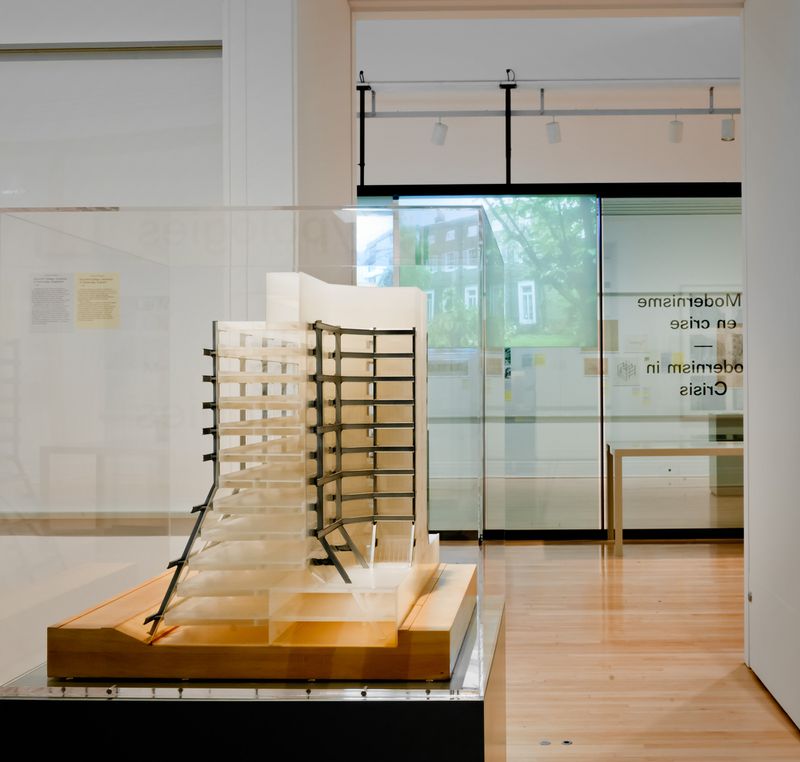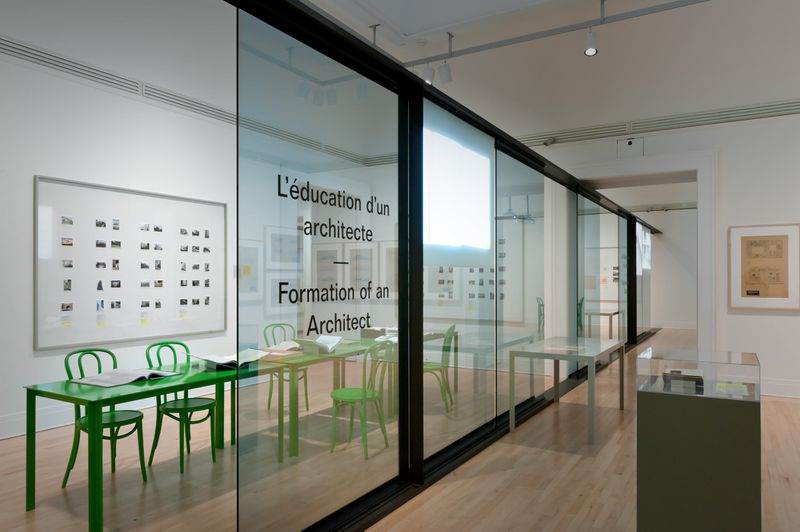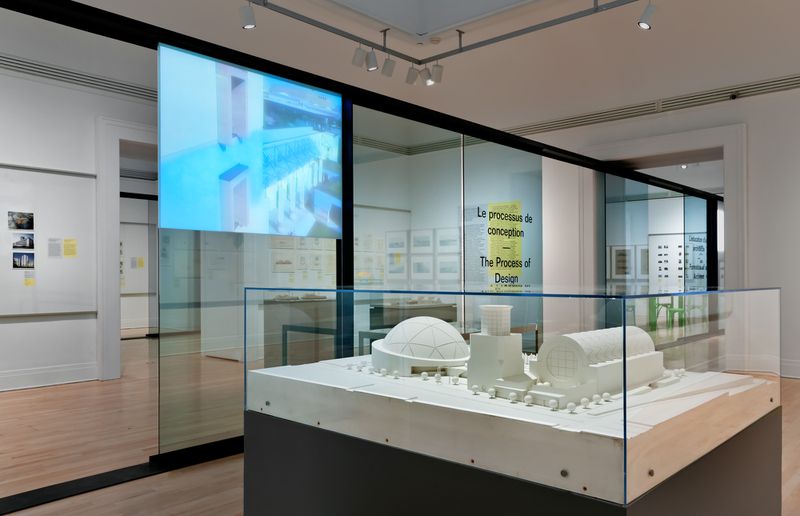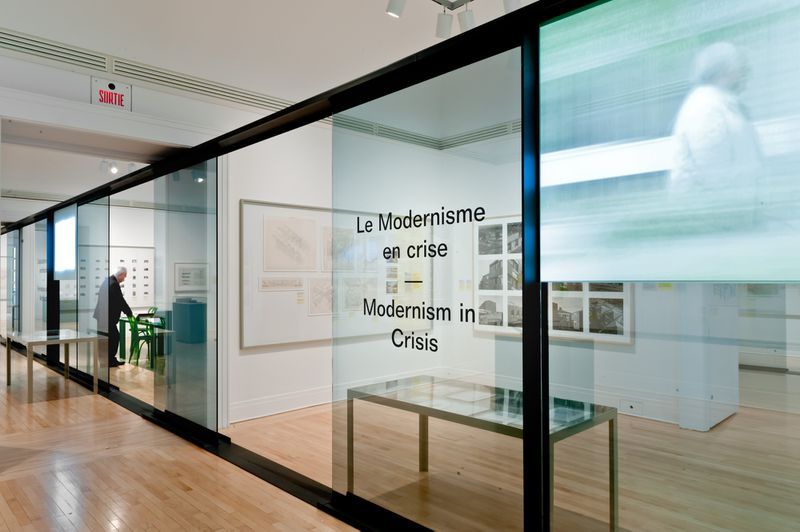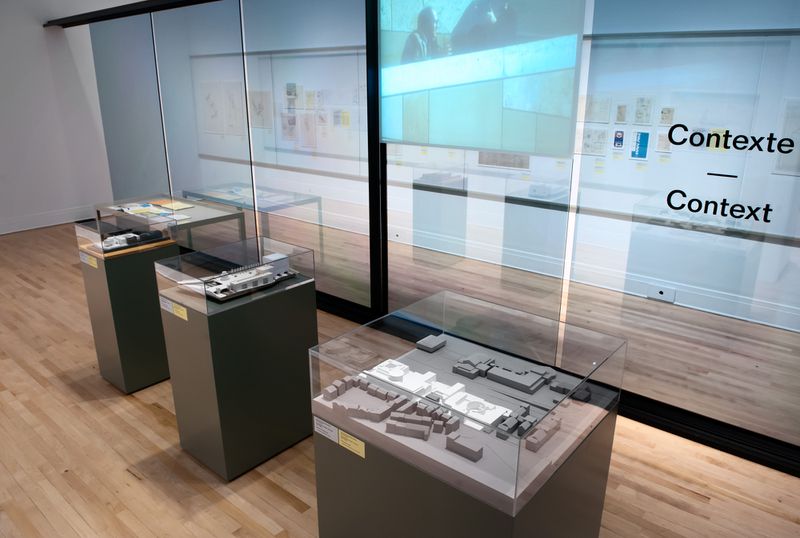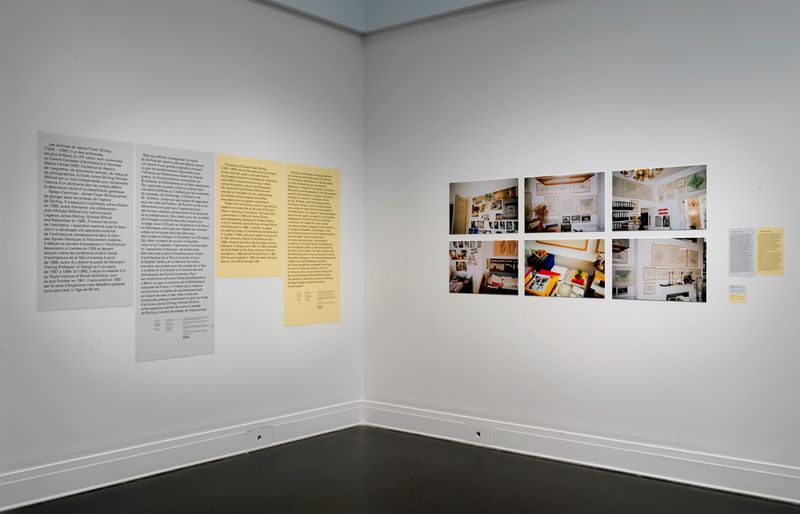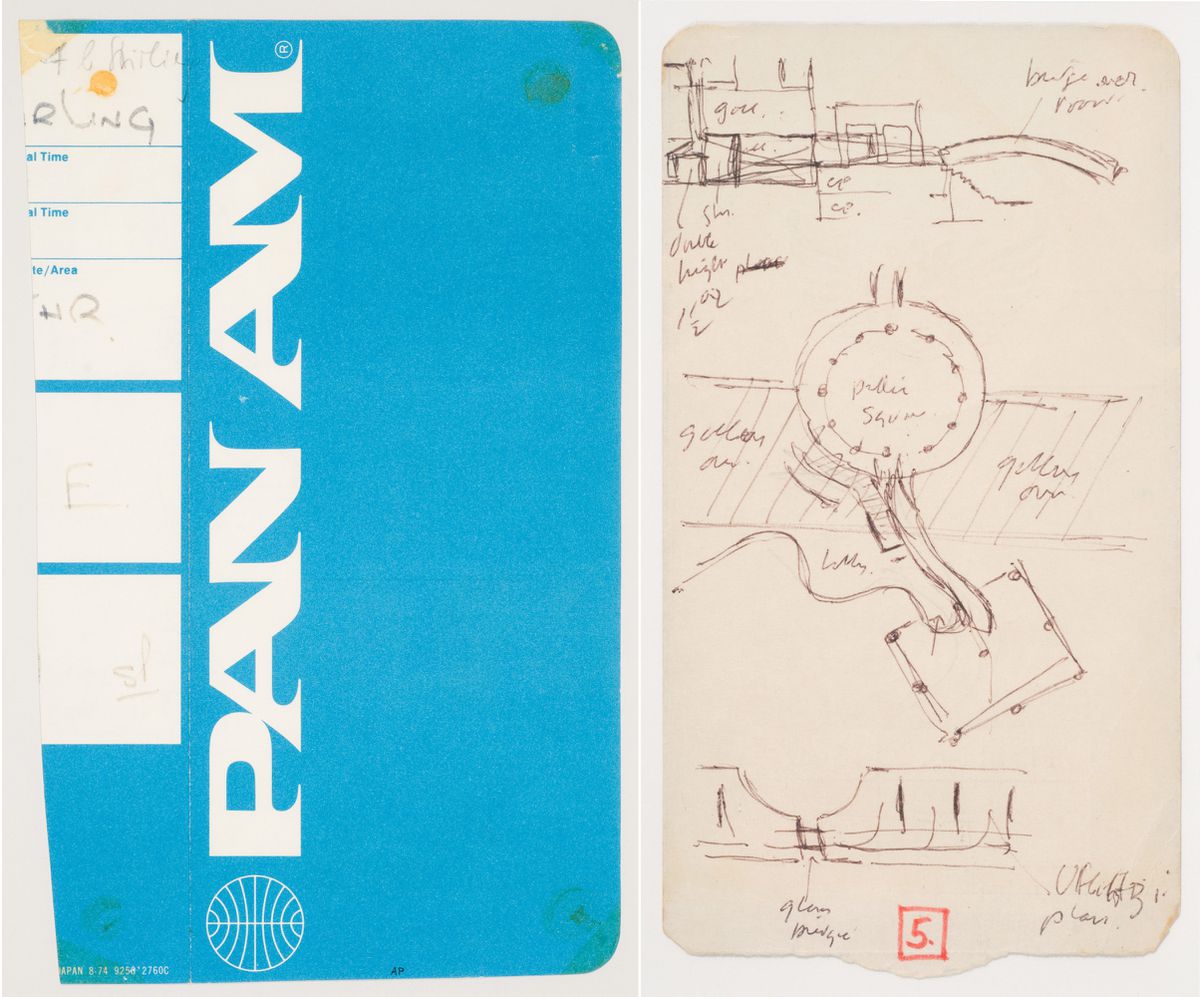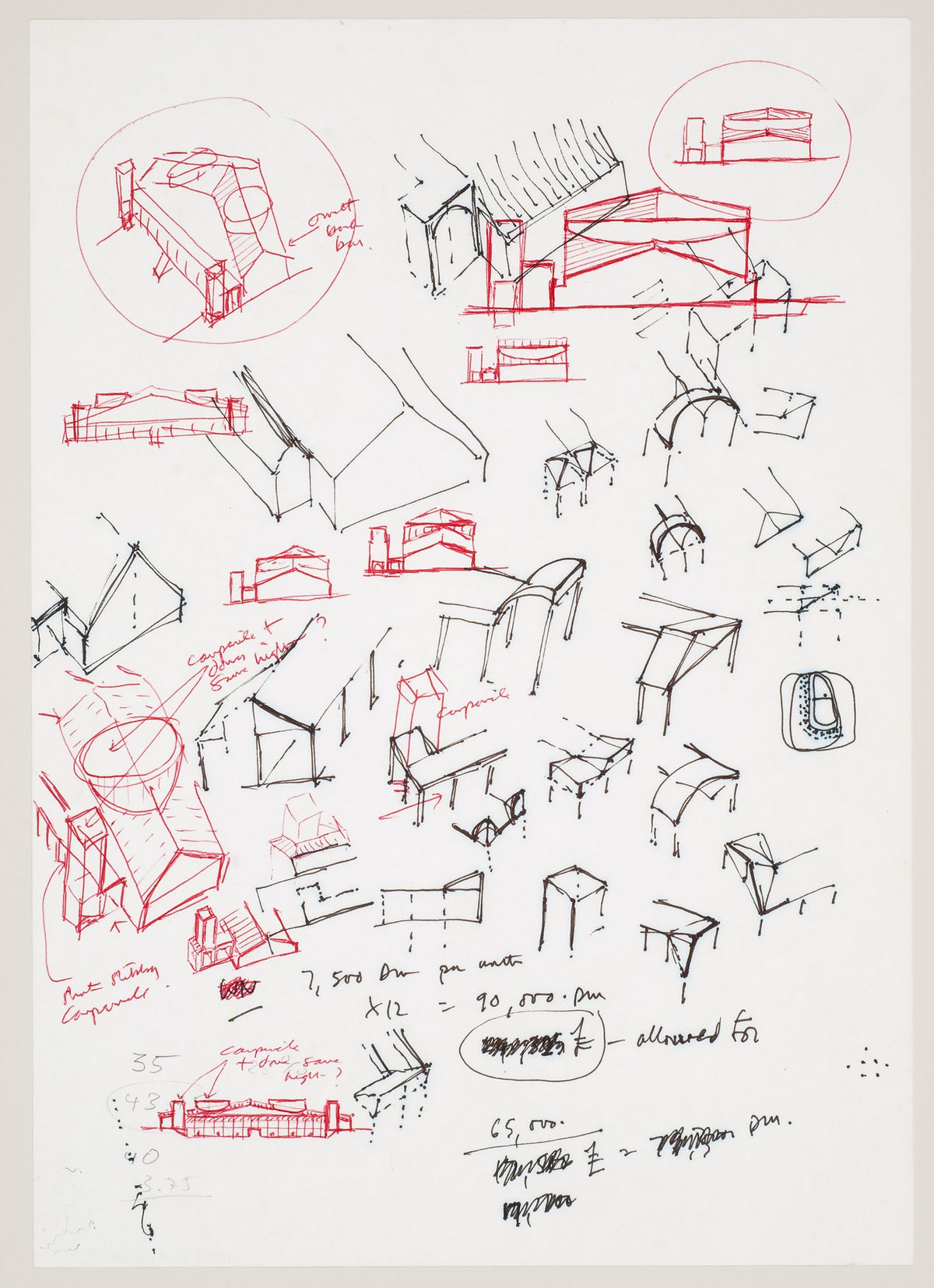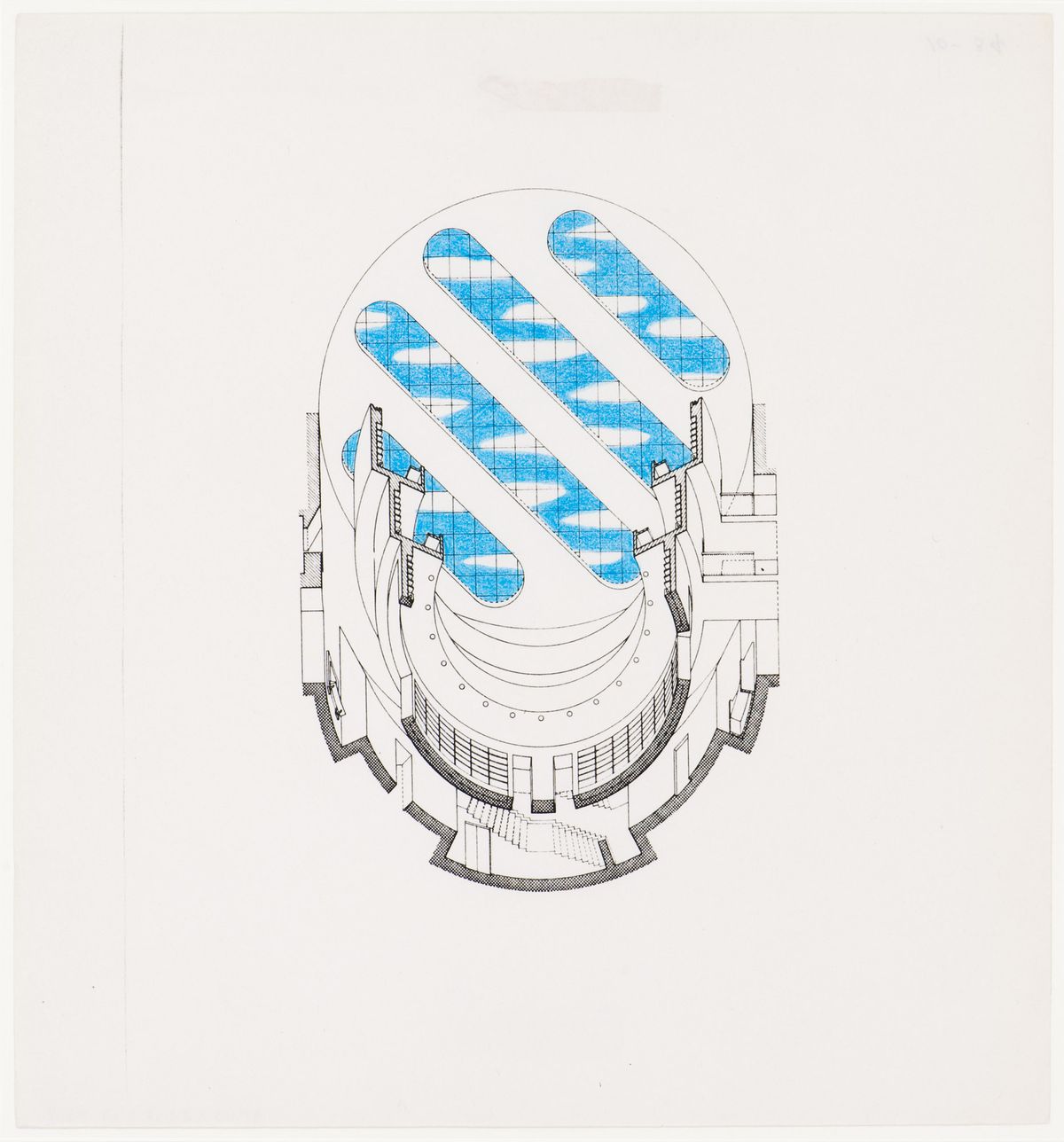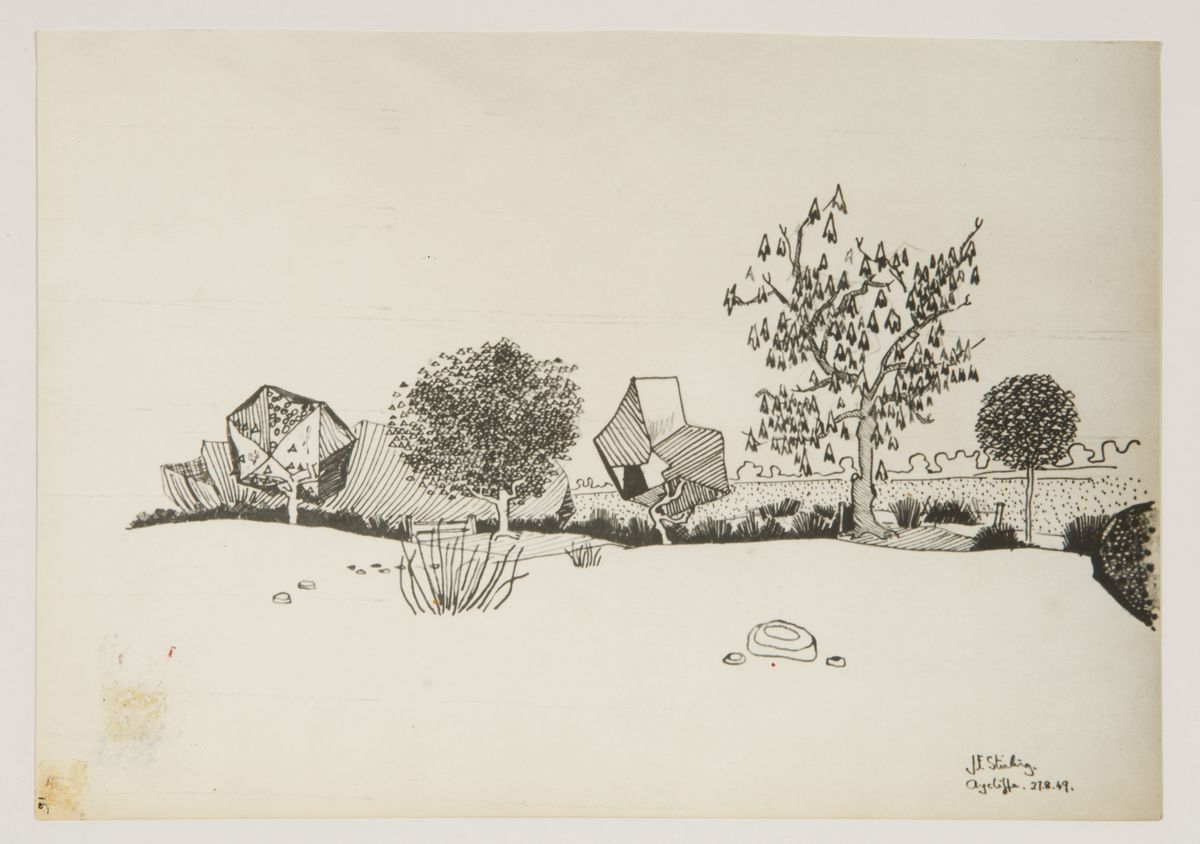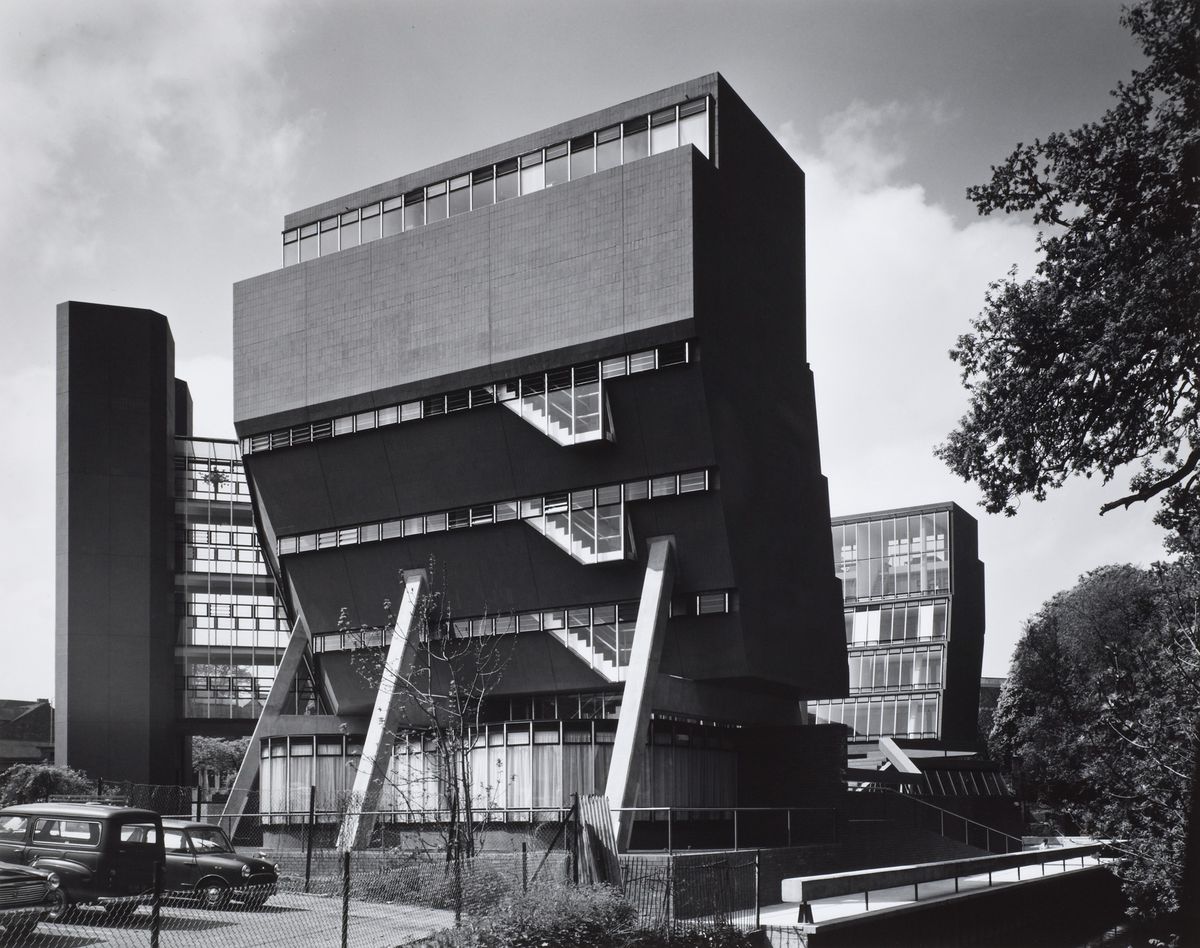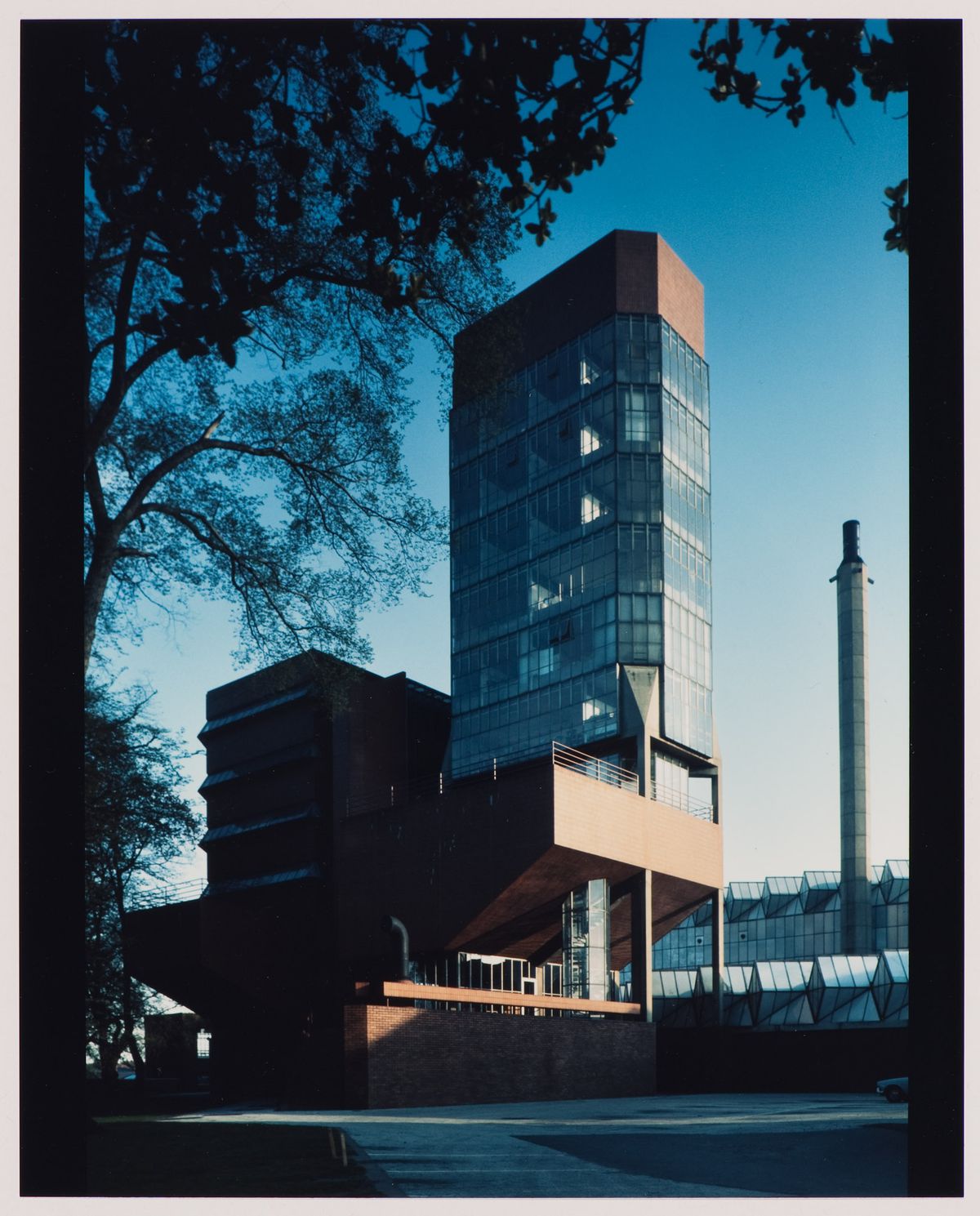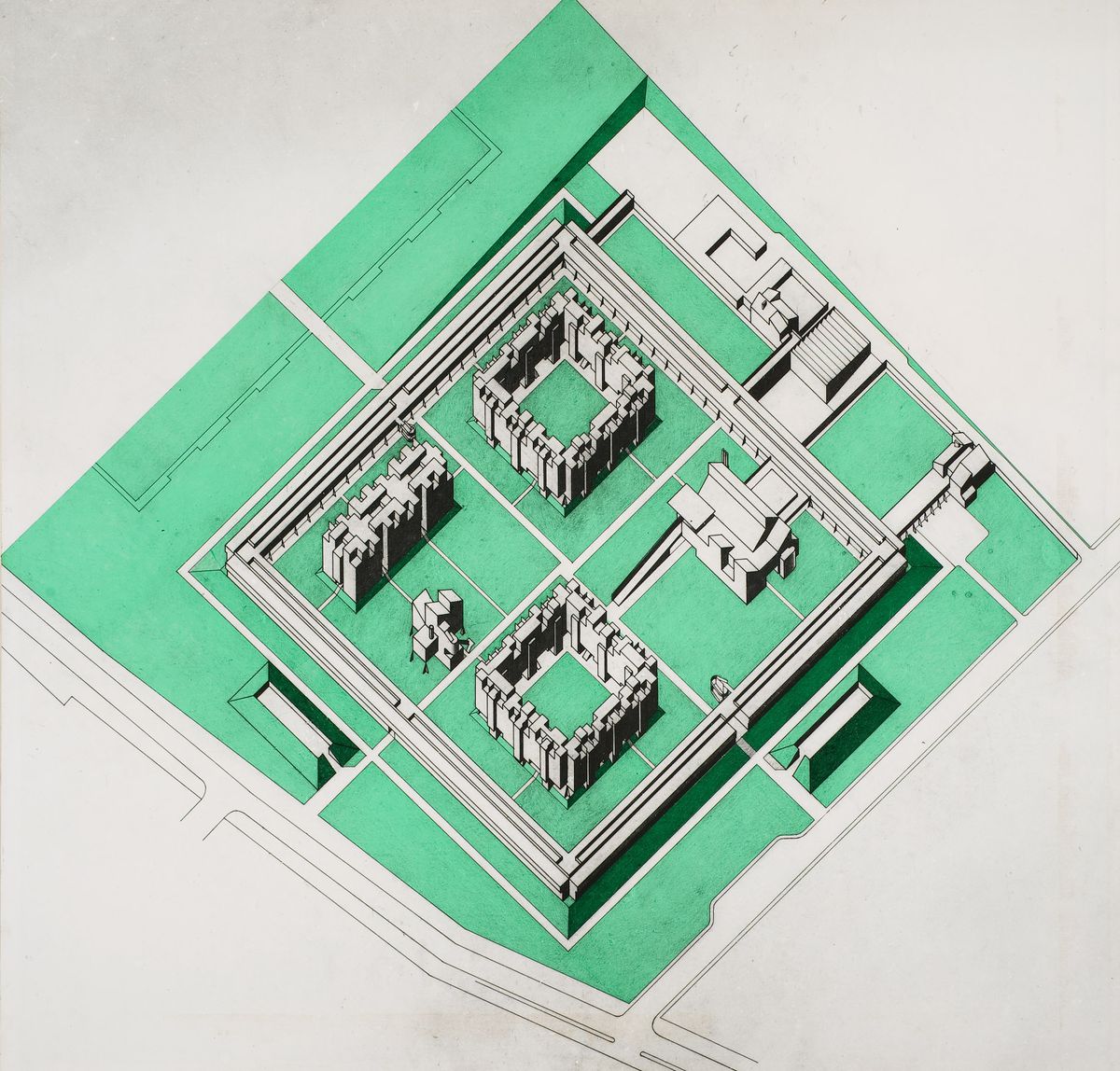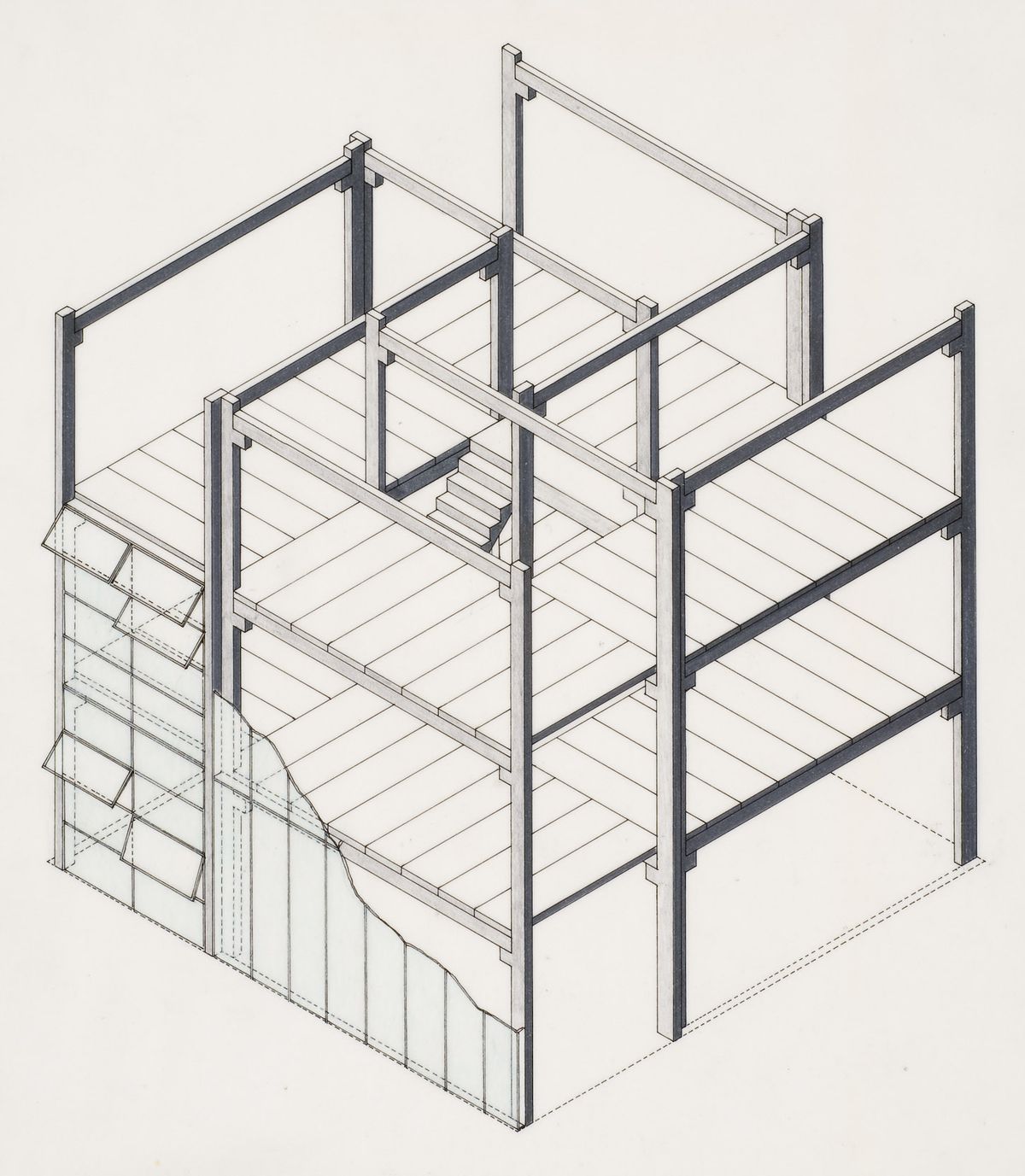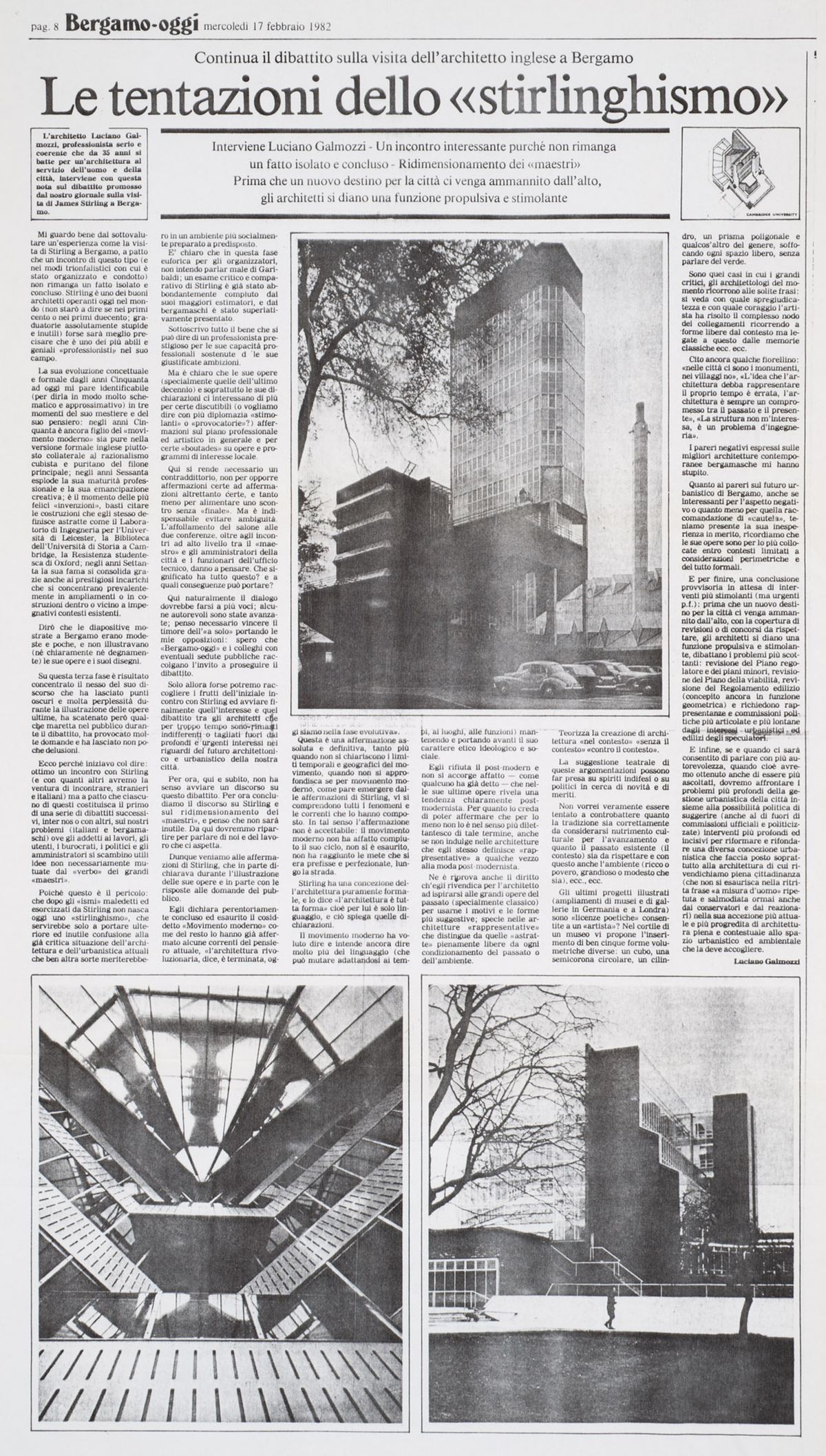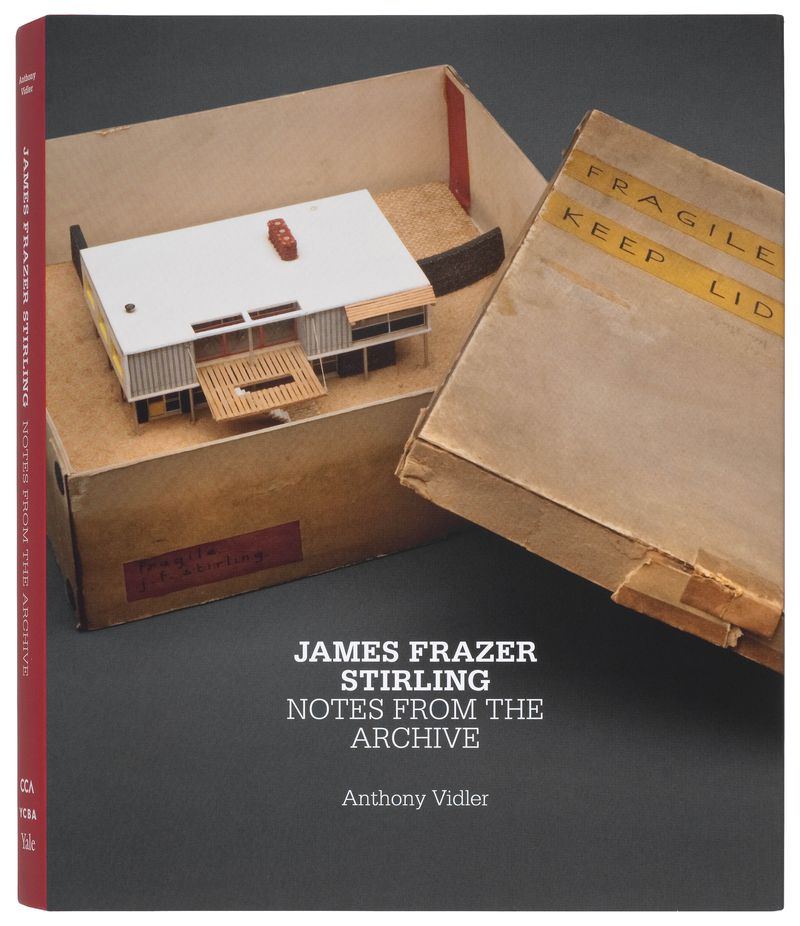Architect James Frazer Stirling’s work has resisted characterization because of its radical shifts in influence, named by others as prewar modernism to Neoclassicism, Rationalism and Brutalism to Postmodernism. But the continuity of his thinking emerges through the quantity and variety of material in the James Stirling/Michael Wilford Archive, a tool for understanding an architectural practice of unusual complexity.
A career of forty-four years produced a world of objects from lecture notes and sketches scribbled on the backs of airline tickets, the hundreds of photographs taken by Stirling over the years—for his camera was his sketchbook—to the article drafts and the famous Black Notebook of observations and ideas. They all offer ways into his work and some of them are new. Particularly rare are the clippings, photographs, and ephemera that Stirling and his office collected. These are never seen side by side with related projects.
From his earliest education at the Liverpool School of Architecture, captured in his undergraduate thesis for Newton Aycliffe and its struggles with Le Corbusier, the archive illustrates his growing engagement with regionalist modernism and his emergence from the shadow of formidable teacher Colin Rowe. Publically this culminates in his highly original Leicester University Engineering Building, a programmatically and technologically contemporary project with historical and functional associations.
Projects like the Olivetti headquarters in Milton Keynes can be studied from a sequence of drawings, in the order they were found, which detail the working out of the curving form and complex volumes. Others, like the competition entry for France’s Bibliotheque Nationale in 1989, a “miniature city” of books, are responded to by an exhibition across the hall, Très Grande Bibliothèque (Very Big Library), that documents another exceptional entry, by OMA.
A part of this exhibition travelled to Yale, the Tate in London, and the Staatsgalerie in Stuttgart. At home in Montreal, it is bigger and changed. Notes from the Archive is the most thorough examination to date of the practice of one of the twentieth century’s most important architects, and on the possibilities of archival research.
Curator: Anthony Vidler, Cooper Union.
Co-organizer: Yale Center for British Art.
